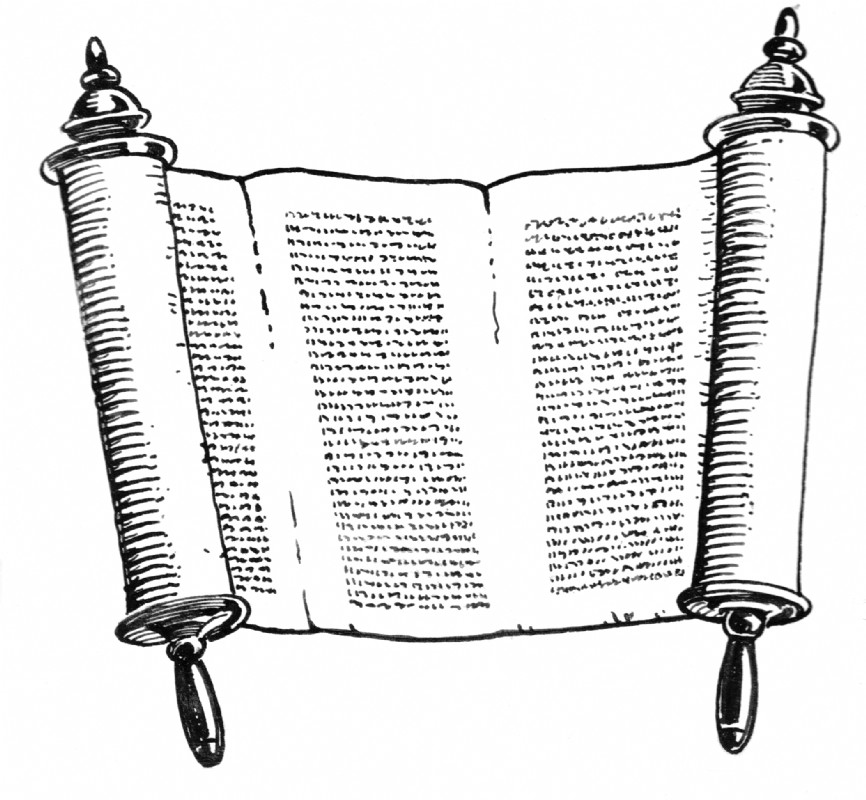Joshua 24:14 – Now therefore fear the Lord and serve him in sincerity and in faithfulness. Put away the gods that your fathers served beyond the River and in Egypt, and serve the Lord."

Chapter 24 contains the farewell address of Joshua to the children of Israel. In the first portion of the chapter, Joshua rehearses the history of Israel before the people. He begins at the beginning – when God called Abraham out of idolatry and promised to establish a new nation through his offspring (Genesis 15:4-7).
He goes on to mention the patriarchs, the years of slavery in Egypt, the miraculous exodus and the astonishing conquest of the Promised Land.
The purpose behind this history lesson is to point out that it was Jehovah who had done all these things for Israel. Without him, they would not exist. Without him, the nation would never have survived. Without him, they would never have left Egypt. Without him they would not be standing before Joshua on that very day, while dwelling in the Promised Land.
Furthermore, God had entered into a covenant with Israel. He bound himself to be their strength, their shield and their provider. He would bless them in all things. In return, Israel was to be faithful to him, and display the glory and mercy of God to all the heathen nations. They would be the family line through which God would bring his Messiah into the world to redeem mankind (Genesis 12:1-3).
With this in mind, we circle back to the words of Joshua in verse 14: 'Therefore fear the Lord and serve him in sincerity and truth'.
Fear the Lord – In this case, 'fear' means to respect or revere. God's people should revere him as the sole object of their worship.
Serve him – Israel was to obey the commands of the Lord according to the covenant they made with him. They were never to serve or bind themselves to false idols.
In sincerity and in truth – Israel was not to just mechanically go through the motions of serving the Lord and adhering to religious rites. Rather, their whole hearts and minds should be actively engaged in worshiping God according to the covenant.
If they wanted to serve God in that fashion, they would have to forsake any and all traces of idolatry that had crept into their lives. Let's consider that for a moment.

Israel had been faced with false idols for their entire existence. As we noted last week, God called Abraham out from a life of idol worship. These were the gods of the Chaldeans who worshiped fire, light and the sun.
Israel was also very familiar with the multiple gods of Egypt – Apis, Anubis, Ra, etc. Did you ever wonder why God used the 10 plagues to ensure the freedom of Israel, rather than just bringing them out instantly at his command?
It's because each of the plagues was essentially a showdown between Jehovah and one of the main Egyptian gods. In each case, Israel witnessed in a dramatic (and memorable) fashion that their God, Jehovah, was more powerful than any of the idols Egypt served. In fact, it proved that Egypt's idols were not gods at all; they could do nothing to help the Egyptians.
Israel was also acquainted with the gods of the Canaanites, Moabites, and other people groups inhabiting the Promised Land. These included Astarte/Venous, Baal and others.
Here we find a clear implication that while Joshua prevented all public displays of idolatry there were no doubt some Israelites who practiced idolatry privately in their homes and/or businesses.
What would make Israel look to these idols? Perhaps it was their familiarity with them, or perhaps it was because each of these false gods had a tangible form or representation which they could see/imagine. Perhaps they fell into the trap of believing in multiple gods. But regardless of the reason, in light of all the astonishing miracles Israel had seen, there could be no excuse for idolatry.
Joshua 24:15 – "And if it is evil in your eyes to serve the Lord, choose this day whom you will serve, whether the gods your fathers served in the region beyond the River, or the gods of the Amorites in whose land you dwell. But as for me and my house, we will serve the Lord."
When Joshua exhorts the people to 'choose' who they will serve, this was a rhetorical statement which implies that the true worship of Jehovah was the only real choice in this matter. The worship/service of idols was so absurd and useless that, given a choice, no one in their right mind would choose the idol.
Nevertheless, the Israelites are not forcibly compelled to serve God; they can indeed choose to serve a false god. This actually makes perfect sense, because God has always given man a free will; his desire is that we serve him willingly because we love him, not because we are forced to do so. This is the kind of true relationship God desires to have with us.
Because of the liberty God has given to us, no one becomes a Christian by accident. It doesn't happen because your parents or grandparents serve the Lord. It doesn't happen because you attend church or live in a Christian home. Salvation requires a conscious act of will by each person who desires to serve Christ.
Romans 10:9 – if you shall confess with your mouth the Lord Jesus, and shall believe in your heart that God has raised him from the dead, you shall be saved.

Because salvation takes a conscious act of the will, indecision is essentially a decision to reject salvation. If a person continually puts off making a decision for Christ, it's the same as making the absurd choice to reject God.
While we don't understand every single principle or doctrine of Christ, we know enough to choose spiritual life over spiritual death. Advanced spiritual understanding is a journey we embark upon after salvation, not before. Lack of full understanding is not a reason to reject God, neither is it a good reason to delay making a commitment.
In fact, there is absolutely NO reason to delay. Salvation is easy and simple to obtain. Choosing to serve the Lord will bring eternal life and peace. Choosing a false god (or choosing nothing) will lead to eternal death and despair.
Critics and unbelievers have often condemned God for 'sending people to hell', when in reality he does no such thing – He made salvation available to all; it is up to each one of us to choose where we will spend eternity. Those who have chosen to reject Jesus have chosen to go to hell themselves.
Joshua makes it very clear that he and his household/family have chosen to serve the living God, and he admonishes the rest of Israel to join him.
Joshua 24:16-18 – Then the people answered, "Far be it from us that we should forsake the Lord to serve other gods, for it is the Lord our God who brought us and our fathers up from the land of Egypt, out of the house of slavery, and who did those great signs in our sight and preserved us in all the way that we went, and among all the peoples through whom we passed. And the Lord drove out before us all the peoples, the Amorites who lived in the land. Therefore we also will serve the Lord, for he is our God."
The Israelites affirm their decision to completely and whole-heartedly serve the Lord and reject false idols. They are obviously sincere in their commitment:
- They acknowledged the miracles God had performed on their behalf.
- They admit that his protection and guidance had delivered them from all their enemies.
- They know their victories were only achieved by his might and power.
- When presented with the choice, they willingly and freely acknowledge Jehovah as God and pledge to serve him.

As we will soon see, their commitment lasted all the days of Joshua and the elders who outlived him. However, the day would come when they fell into apostasy and tried to merge idolatry with the true service of God. What would cause this to happen? How could they fall from the position of sincerity into idolatry?
It has often been remarked that the real test of our faithfulness to God is not our ability to serve him in moments of trial and testing, but to steadfastly serve him during the ease and commonality of day-to-day life.
For instance, it was not hard for Israel to cling to the Lord as they left Egypt or wandered in the wilderness or fought for the Promised Land. They were close to God because the power of their foes plainly revealed that they had no hope except in Him; God alone ensured their very survival.
In other words, it was easier for the current generation of Israelites to remain faithful the Lord, because these memories were fresh in their minds. Plus, they realized there were still battles in their future. They knew they were going to need God again very shortly as they continued to claim the land.
But once that generation was gone and the next one found itself in comparative ease and prosperity, they began to mistakenly believe that they could rule, defend and expand the nation in their own strength. Foolishly, they thought they could provide for all their own needs. Essentially, they didn't need God so much anymore.
That was a very serious problem and here is why: God created man with a built-in need/desire to worship and serve him. As we already mentioned, man can choose not to worship God, however, man CANNOT simply remove his need to worship something.

This opened the door for Israel to succumb to the temptations of idolatry, self-indulgence and lust. Although they never rejected God outright, they corrupted and degraded his pure worship by adding elements of idolatry to it. This was an abomination in God's sight and a direct violation of the covenant.
Eventually, this led them into captivity, where they lost every blessing the Lord had given them.
What about our own lives? Is there a lesson here for us?
I believe there is. We all wish for lives of ease, comfort and peace; no one I know desires to experience hardships or trials.
Yet, God accomplishes A LOT of good in our lives during these times:
- Trials cause us to realize we need the Lord.
- Trials cause us to draw closer to him and seek his guidance, provision and protection.
- Trials increase our faith.
- Trials result in testimonies that witness to the lost and encourage believers.
Colossians 4:2-3, 5 - Continue in prayer, and watch in it with thanksgiving; praying also for us, that God would open unto us a door of utterance, to speak the mystery of Christ, for which I am also in bonds: walk in wisdom toward them that are outsiders, redeeming the time.
Trials also remind us that we need to redeem or make the best use of our time. There are two kingdoms here on planet earth, and we need to be actively involved in the spiritual realm.
As soldiers of the cross, we must view each and every day here on earth as a day of 'active duty' in which we strive to further the kingdom of God by rescuing sinners from darkness. If trials and tribulations assist us in staying true to this mission, then they aid in our eternal good.
Joshua 24:19-20 – But Joshua said to the people, "You are not able to serve the Lord, for he is a holy God. He is a jealous God; he will not forgive your transgressions or your sins. If you forsake the Lord and serve foreign gods, then he will turn and do you harm and consume you, after having done you good."
Joshua's purpose in gathering the nation at Shechem was to get them to recommit themselves to their covenant with God. Since that is the case, it seems odd that he would openly declare that they were 'not able to serve the Lord'. It seems as though he is discouraging them from the very thing he called them together to do. However, that was not the case.
Picture the scene with me: Joshua looks at the Ark of the Covenant and recognizes that God's covenant is holy, just and good. At the same time, he also sees the mass of imperfect humanity before him, which is utterly unable to keep the stern morality and rigorous commands of the law.
It becomes clear to Joshua that faithful service to the Lord required commitment, courage and resolution. In addition, the spiritually undisciplined people would have to conquer numerous temptations and evil tendencies in order to faithfully cleave to God.
Thus, we see that his statement is meant as a kind of challenge to stir zeal up within the hearts of the people to remain faithful to the Lord. He wants them to recognize that it was impossible for them to keep the law with their own strength and ability; it could only be accomplished through divine assistance and mental determination.
Furthermore, Israel needs to be reminded that God is jealous. He has no equal and he will not share his glory with another, especially false idols:
Isaiah 42:8 - I am the LORD: that is my name: and my glory will I not give to another, neither my praise to graven images.
It was (and is) blasphemy to give idols the worship that only God deserves. As Joshua just illustrated for the nation, it was God who formed them, God who multiplied them, God who protected them, God who entered into a covenant with them, God who blessed them and God who brought them into the Promised Land. To give or share the glory due to God with a false idol was to profane/blaspheme the name of God (Exodus 20:3).
Finally, Joshua warns the Israelites that if they committed themselves to the covenant but broke that promise by worshiping idols, God would surely bring disaster upon them:
Deuteronomy 8:19 - And it shall be, if you do at all forget the LORD your God, and walk after other gods, and serve them, and worship them, I testify against you this day that you shall surely perish.
Israel needed to remember that God is always faithful to his promises, and he promised (numerous times) to remove them from the land and bring disaster upon them if they served idols (Deuteronomy 28:15-68, Deuteronomy 30:17-18, Jeremiah 1:14-16 etc).
Joshua 24:21 – And the people said to Joshua, "No, but we will serve the Lord." Then Joshua said to the people, "You are witnesses against yourselves that you have chosen the Lord, to serve him." And they said, "We are witnesses."
In our day, people legally bind themselves to contracts by the use of their signature. If you sign your name to a legal document (even electronically), you are bound by the conditions of the contract. If you fail to keep your part of the bargain, legal/punitive action can be taken against you.

In the same way, after a full explanation of their responsibilities, (especially that of forsaking idols), the people of Israel universally agree to serve God. Their pronouncement was made of their own free will, on a solemn public occasion. This declaration amounted to the same thing as a legal signature in our society.
Just to be clear, Joshua informs them once again that their words are legally binding – they agree to worship and serve no other god but Jehovah. If they do not keep their word, God can take punitive action against them.
Joshua 24:23-24 – He said, "Then put away the foreign gods that are among you, and incline your heart to the Lord, the God of Israel." And the people said to Joshua, "The Lord our God we will serve, and his voice we will obey."
Joshua's response to the people raises an interesting question – Is he commanding them to remove idols/foreign gods which they currently have in their homes or is he admonishing them to resist their temptations to embrace these idols in the future?
Truthfully, it could have been both.
It is no secret that at other times in Israel's history they publicly claimed to serve God, while at the same time some of them had common household gods which they secretly worshiped:
Genesis 35:4 – And they gave unto Jacob all the strange gods which were in their hand, and all the earrings which were in their ears; and Jacob hid them under the oak which was by Shechem.
(See also Genesis 31:19, etc). Obviously, the Israelites found many idols as they plundered the cities of Canaan, which they may have chosen to retain, rather than destroying them. Some scholars suggest that the Israelites may have still been in possession of idols which they took from Egypt. In either case, Israel certainly access to idols.
Commentators who hold this view (that Israel was currently worshiping actual idols) believe idolatry of this kind never really ceased in ancient Israel. At times it would get worse, and at times the people would repent and distance themselves from these evil practices, but they believe idolatry pervasively continued at all times within the nation.
Other scholars believe that the phrase 'among you' should be translated 'within you' and therefore Joshua is referring to the inclination/desire of the people to worship these gods. In their view, Joshua is not speaking about actual idols the people possessed, but he is referring to the thoughts and intents of their hearts.
They point out that after the terrifying demise of Achan (Joshua 7), the people did not dare to harbor idols in their midst, as nothing could be hidden from the Lord who sees what is done in secret.
Therefore, they believe that Joshua's statement simply means that the people were to renounce all idols, clear themselves of all defilement and worship God in purity and truth. They key to doing so was to love God with all of their hearts. If they truly loved God to that degree, it would be easy to reject idolatry and cling to the Lord.
Perhaps the real lesson here is that the spiritual and physical aspects of our lives cannot actually be separated, because whatever is in our hearts is what will manifest in our lives:
Matthew 12:34 - For out of the abundance of the heart the mouth speaks.
Luke 6:43, 45 – For no good tree bears bad fruit, nor again does a bad tree bear good fruit The good person out of the good treasure of his heart produces good, and the evil person out of his evil treasure produces evil, for out of the abundance of the heart his mouth speaks.
In the case of Israel, the putting away of false idols/gods was to be the outward, visible sign that their hearts and minds fully belonged to the Lord. Likewise, the fruit we bear in our lives, whether evil or good, reflects whether or not we are serving God with all of our heart, soul, mind and strength.
However the people of Israel understood Joshua's words, they freely/willingly declared their allegiance to the Lord. They committed themselves to obeying his word and serving him only.
Joshua 24:25-26 – So Joshua made a covenant with the people that day, and put in place statutes and rules for them at Shechem. And Joshua wrote these words in the Book of the Law of God. And he took a large stone and set it up there under the terebinth that was by the sanctuary of the Lord.
This is the outcome that Joshua was seeking when he called Israel to this gathering. After delivering the word of the Lord to the nation (verses 1-13), he asked them to recommit/rededicate themselves to God. This was done through a renewal of the covenant.
This was not the first time the covenant had been renewed. The people had recommitted themselves to the Lord under Moses after the 40-year desert wandering (Deuteronomy 29).

Neither would this be the last time Israel renewed the covenant with God. Subsequent renewals were made under the reigns of King Asa (II Chronicles 15:12-13), King Joash (II Chronicles 23:16), and King Josiah (II Chronicles 34:31-32).
The 'statutes and rules' mentioned here were nothing new; they were the requirements of the original covenant that the people were already familiar with. The decision of the people was officially recorded by Joshua in a sacred book and then signed by the elders of the people.
In the original language, it literally states that Joshua 'cut' a covenant. This indicates that sacrifices were included in the renewal of the covenant.
In addition, (probably because there was only one copy of the document), Joshua ordered a large stone or pillar to be set up on public land. The stone/pillar was most likely covered with a thin coat of mortar, then engraved with language which declared that at such and such a time and place, the covenant was renewed between Israel and Jehovah; details could be found in the book of the law (Deuteronomy 31:26).
This stone/pillar was a powerful witness or testimony to what had taken place between Israel and the Lord.
Joshua 24:27-28 – And Joshua said to all the people, "Behold, this stone shall be a witness against us, for it has heard all the words of the Lord that he spoke to us. Therefore it shall be a witness against you, lest you deal falsely with your God." So Joshua sent the people away, every man to his inheritance.
It was not uncommon for the people of the ancient east to personify or assign character traits (such as hearing, seeing or speaking) to inanimate objects, as Joshua does here (the proper term is prosopopoeia).
Another example of this is when Jacob and Laban made a pact with each other, and raised up a heap of stones as a witness to their agreement (Genesis 31:45). See also Isaiah 1:2, Jeremiah 2:12, etc.

So, in this scenario, if the Israelites break their covenant with God or disobey the commands of the Lord which they promised to keep, the stone itself would serve as a witness against them. It would testify to their unrighteousness, just as a witness testifies in a court of law.
Therefore, the stone was to be a memorial to both present and future generations; it would remind them of their covenant with God, and thus prevent them from falling into apostasy, idolatry, atheism or false worship.
Once the ceremonies were complete, Joshua dismissed the people to return to their homes. He had done everything within his power to keep Israel faithful to the Lord. Now it was time for him to enter his eternal rest.
Joshua 24:29-30 – After these things, Joshua the son of Nun, the servant of the Lord, died being 110 years old. And they buried him in his own inheritance at Timnath-serah, which is in the hill country of Ephraim, north of the mountain of Gaash.
Joshua did a lot of amazing things in his life. He could be described as a general, a vice president (aka Moses' assistant), an advisor, a giant slayer, and many other wonderful things. But at his funeral, he is best remembered as 'the servant of the Lord'. Wow! What a testimony to the way Joshua lived his life! I don't know about you, but I hope people can say that about me after I die!
Having completed the work which God assigned to him, Joshua now enters into his eternal rest/reward.
Revelation 14:13 - And I heard a voice from heaven saying unto me, Write, Blessed are the dead who die in the Lord from now on: Yea, says the Spirit, that they may rest from their labors; and their works do follow them.
Interestingly, there is no record of any public mourning for this great leader, as there was for Aaron (Numbers 20:29) or Moses (Deuteronomy 34:8). No one really knows why this was the case. It may be attributed to the fact that he was buried on his own private land, or it may simply be that the author leaves this information out of the text.
Joshua 24:31 – Israel served the Lord all the days of Joshua, and all the days of the elders who outlived Joshua and had known all the work that the Lord did for Israel.
As we mentioned previously, the generation that saw/experienced the miracles of God firsthand remained faithful to him. However, the generation that grew up without much hardship was the generation that drifted away from the Lord.
Joshua 24:32 – As for the bones of Joseph, which the people of Israel brought up from Egypt, they buried them at Shechem, in the piece of land that Jacob bought from the sons of Hamor the father of shechem for a hundred pieces of money. It became an inheritance of the descendents of Joseph.
At the very end of this book, we have a couple pieces of information that seem to be added to the text by someone other than Joshua. One of them deals with the bones of Joseph.

In Genesis 50:22-26, Joseph is about to die. He makes the children of Israel swear an oath that when they leave the land of Egypt, they will dig up his bones and take them into the Promised Land. And sure enough, we find that the children of Israel honored this last wish of Joseph. They finally entombed his remains in the historic town of Shechem.
Joshua 24:33 – And Eleazar the son of Aaron died, and they buried him at Gibeah, the town of Phinehas his son, which had been given him in the hill country of Ephraim.
For some reason, note is also made of the death of Eleazar the priest. Perhaps he is mentioned because of the work he did in assisting Joshua to divide up the land. He may also have been mentioned because the writer is showing that all of the famous leaders of the old generation were dying.
Thus, the next generation is left with an amazing inheritance, a covenant with the Lord and the godly example of their ancestors. What they did (or did not do) with these advantages is a story for another day!
Let me offer you some encouragement, relief and strength:
In this chapter, Joshua reiterates the fact that each of us has a choice to make. He chose to serve the Lord, and his choice was reflected in the way he lived his life. Once his life was finished, he entered into an eternal state of rest and reward.
What about you? Have you made a commitment to follow Christ? Have you accepted him as Lord and Savior of your life? If you died today, would you enter eternal rest and reward or eternal torment?
You can make a conscious decision to follow Christ by praying a prayer of salvation right now:
Dear Jesus,
I confess to you that I am a sinner. I am sorry for all the wrong things I have done and I ask you to forgive me. I believe that you are the Son of God, that you died on the cross and rose again, and that your blood paid the price for my sin. I invite you to come into my heart and life and to be my Lord and Savior. I commit myself to you right now. Thank you for saving me from death and giving me the gift of eternal life. Amen.
If you prayed this prayer and sincerely meant it, then you have received the gift of salvation from Jesus Christ!
